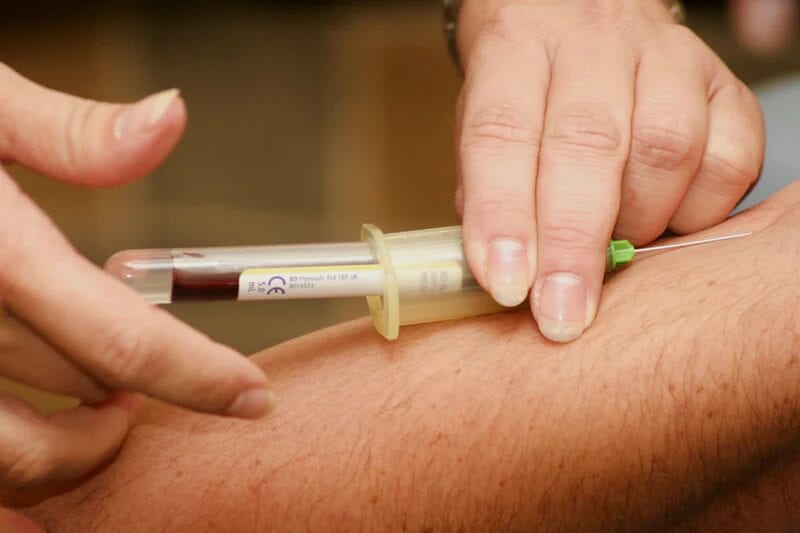Why Should I Become A Medical Assistant?
Are you interested in becoming a medical assistant? Perhaps you’re excited about the prospect of making a difference through face-to-face patient care, or maybe you’re interested in pursuing a career with a flexible schedule—where each day offers a new, exciting challenge.
Whatever your reason for being interested in a medical assistant career, we’ve compiled this comprehensive guide on what the profession is, its job outlook, possible work environments, and some online/hybrid and on-campus medical assistant programs to consider to get your credentials and start a career.

What Is a Medical Assistant?
Medical assistants train to work with physicians and are well-versed in both medical and clerical duties. These duties include testing patients, collecting vitals, drawing blood, giving injections, administering medications, handling medical billing, managing records, and setting appointments. Medical assistants commonly work in physicians’ offices, hospitals, clinics, and health care facilities.
A medical assistant position can be flexible, with both part-time and full-time opportunities in small and large clinics. Medical assistants can work for general physicians’ offices and also specialize and work alongside specialists, like:
Skills Medical Assistants Need
- Customer service. A necessary skill when providing patient care with proper patient etiquette and administration work in the office. Medical assistants can have direct contact with patients through nearly every process of their care.
- Medical terminology and general medical knowledge. These skills are taught in medical assistant schools. Medical assistants often communicate between the patient and physician and should be able to understand and communicate with medical terminology.
- Clerical/Administrative skills. It is very common for medical assistants to have at least some administrative responsibility. Medical assistants will most likely have courses in their degree program about this.
- Written and verbal Communication skills. Medical assistants are responsible for communicating efficiently, both in written and spoken form. They communicate regularly with patients, doctors, nurses, and other medical assistants, so it’s important to pay close attention to detail while at work.
Why Should I Become A Medical Assistant?
According to the U.S. Bureau of Labor Statistics, as of May 2024, the medical assistant employment rate is predicted to grow 12% from 2024 to 2034.1 The BLS explains that the healthcare field is growing, and medical assistant positions will continue to be in demand due to increases in America’s elderly population. It’s predicted that more support in physicians’ offices, hospitals, and other health care settings will be needed.2 Another reason to become a medical assistant is that you do not need to go to a four-year institution and earn a bachelor’s degree to get started. The educational requirements of a medical assistant in 2024, according to the BLS, are a high school diploma/GED and a certificate.3
Should I Get a Medical Assistant Associate Degree or a Certificate?
According to Medical Technology Schools, there are a few similarities and differences between the two forms of medical assistant programs.4
Similarities:
- Medical assistant courses are generally similar
- Many potential job titles after completion of the program are similar
Differences:
- The length of the program differs. A medical assistant associate degree can take between one to two years with a full-time student schedule. Certificate programs will last only around one year.
- In the medical assistant associate degree program, you may have to take general education courses. These may include English, math, and humanities courses.
- Medical assistants with only a certificate may not be able to work in a specialist’s office without further education.
What Jobs Can You Get After Graduating From a Medical Assisting Program?
Medical assistant students who have recently graduated will be qualified for several job positions and titles. These include, but are not limited to:
- Medical assistant
- Laboratory technician
- Hospice aide
- Clinical assistant
- Admissions clerk
- Home health aide
- EMT and paramedic

Common Medical Assistant Program Courses
While degree plans differ from program to program, these are common courses included in most medical assistant programs:
- Clinical Aspects of Coding and Billing
- Medical Terminology
- Medical Administration
- CPR Training
- Surgical Procedures
- Pharmacology
- Anatomy and Physiology
- Medical Office Laboratory Procedures
Where Do Medical Assistants Work?
When looking for a job, it is important to consider what environments you’ll be expected to work in. According to the BLS in 2024, medical assistant work environments were as follows:5
- 57% in physicians’ offices
- 17% in hospitals
- 10% in outpatient care centers
- 7% in offices of other health practitioners
Factors to Consider When Choosing a Medical Assisting Program
- Transfer credit acceptance
- Graduation rate
- Graduate employment rate
- Diploma, certificate, or associate degree program
- Accreditation
- Cost
- Average/estimated financial aid and scholarships awarded
Accreditation of Allied Health Education Programs
Medical assistant graduates must have gone through a program approved by the Commission on Accreditation of Health Education Programs in order to be allowed to take the American Association of Medical Assistance Exam, the CMA (AAMA).
An accredited program has proven to meet standards by a neutral and external group. This shows the students’ future employers that their education was of quality. It also gets the school qualified for federal financial aid.
For more information, check out this complete list of accredited health education programs through the Council for Higher Education Accreditation.6
On-Campus Medical Assistant Degree Programs
Below are in-person medical assistant programs available as of October 2025.
Northwood Technical College
Wisconsin’s Northwood Technical College offers a 32-credit medical assistant program with required administrative and clinical externships that you can complete in one year.7 Program requirements include first aid and “BLS Basic Life Support” certifications and a clean criminal background. Applicants are required to travel to clinical locations as part of the program, so access to their own transportation is vital.
Pima Medical Institute
Pima’s accredited, nine-month-long medical assistant certificate program offers on-campus and hybrid learning options.8 The program includes clinical externships where students can benefit from real-world experience and direct mentoring. Pima Medical Institute offers this certificate program in multiple states across the U.S., including Texas, Colorado, Washington, Arizona, and beyond.
Berkeley College
New York’s Berkeley College features two CAAHEP-accredited program paths for medical assisting.9 The first is a 33-credit medical assistant certificate; this program is designed to be completed in 45 weeks. The second program is a 60-credit medical assistance associate degree that is designed to be completed in as little as 60 weeks.
Bryant & Stratton College
The Bryant and Stratton College also offers two on-campus program options: a two-year associate of applied science degree in medical assisting and a one-year diploma in medical assisting.10 These programs are accredited and prepare students to take the AAMA National Certification Exam (CMA), the National Healthcareer Association exam (CCMA).
Georgia Northwestern Technical College
Georgia Northwestern Technical College’s medical assisting program with the option of pursuing a 62-hour medical assisting associate degree or a 53-hour medical assisting diploma.11,12,13 Students must have a GPA of 2.0 or higher throughout either medical assistant program to be considered for graduation.

Online/Hybrid Medical Assistant Programs
Below are online/hybrid medical assistant programs available as of October 2025.
College of Health Care Professions
The College of Health Care Professions offers an online/hybrid certificate program for those who wish to earn a certificate in clinical medical assisting.14 To get the most out of their studies, students are required to complete online courses in tandem with in-person, hands-on clinical training at one of the Texas campuses. Students complete this 48-week program prepared to take the Nationally Registered Certified Medical Assistant (NRCMA) exam through the National Association for Health Professionals.
State Fair Community College
This 61-credit medical associate of applied science in medical assisting degree features a blend of online and hands-on education with clinical rotations in Sedalia, Missouri’s local medical offices.15 Coursework features general college courses like public speaking and U.S. History, along with advanced skills classes in health care technology, pharmacology, and more.
Springboard
Springboard’s Online Certified Medical Assistant Program prepares students for entry-level competencies in medical assisting in just 15 weeks.16 This course offers 100% live remote learning, giving students the opportunity to prepare for the Certified Clinical Medical Assistant (CCMA) exam without needing to leave the comfort of their home. Springboard tuition includes weekly live sessions with an experienced MS instructor, as well as a clinical externship in your local area to gain the knowledge and hands-on experience needed to complete the certification exam.
A career are a medical assistant can be highly impactful and rewarding for those who are passionate about working with people, enjoy being a part of the medical field, and are interested in being a part of and supporting a health care team.
Sources:
1 https://www.bls.gov/ooh/healthcare/medical-assistants.htm#tab-1
2 https://www.bls.gov/ooh/healthcare/medical-assistants.htm#tab-6
3 https://www.bls.gov/ooh/healthcare/medical-assistants.htm#tab-4

"Career Karma entered my life when I needed it most and quickly helped me match with a bootcamp. Two months after graduating, I found my dream job that aligned with my values and goals in life!"
Venus, Software Engineer at Rockbot
5 https://www.bls.gov/ooh/healthcare/medical-assistants.htm#tab-3
6 https://www.chea.org/commission-accreditation-allied-health-education-programs
7 https://www.northwoodtech.edu/academic-programs/degree-programs-and-certificates/medical-assistant
8 https://pmi.edu/on-campus-programs/certificate/medical-assistant/
9 https://berkeleycollege.edu/academics/undergraduate-degrees/medical-assistant-program/index.html
10 https://www.bryantstratton.edu/degrees/healthcare/#section-healthcare-programs
11 https://www.gntc.edu/medical-assisting/
12 https://www.gntc.edu/wp-content/uploads/2024/07/MA23.pdf
13 https://www.gntc.edu/wp-content/uploads/2024/07/MA22.pdf
14 https://www.chcp.edu/degrees-certificates/online/medical-assisting-certificate/
16 https://www.springboard.com/courses/medical-assistant-career-track/
About us: Career Karma is a platform designed to help job seekers find, research, and connect with job training programs to advance their careers. Learn about the CK publication.
